It’s been around 90 degrees for about a month now. The humidity sits on you like a wet rag. Finding ways to beat the heat can be tough. Going up seems to be the best remedy so far.
A few weeks ago, we went on our first hiking trip since arriving in Japan and were itching to get out again. This time, we ventured deeper into the Okuchichibu Mountains for Mitsumineyama. Wikitravel called it a “fairly tame” hike to the peak. In hindsight, “fairly tame” may be in the eye of the beholder.
From Kawagoe, it was about a 90 minute train ride to Seibuchichibu Station in Chichibu. Upon arriving, we boarded a local bus that would take us to the Mitsumineyama trailhead. The bus was an adventure in its own right. Billing itself as the “Express” bus to Mitsumine Shrine, it only had a few stops. However, the first stop was 20 minutes away and the second stop, the trailhead at Oowa, was about 45 minutes.
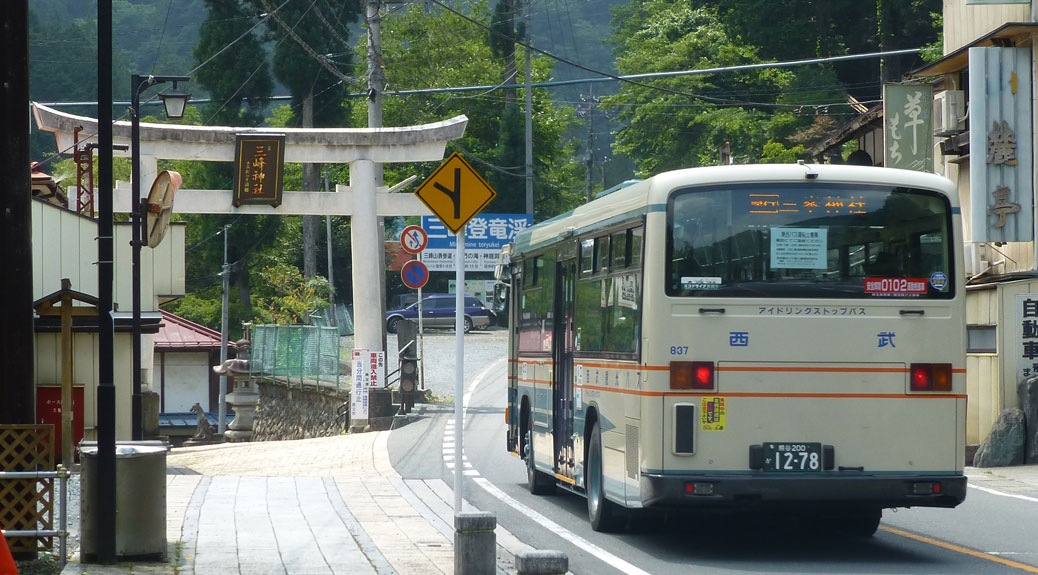
The owner of a small restaurant stopped us on our way to the trail. With a lot of Japanese and many useful hand gestures, she explained that a footbridge had collapsed due to heavy snow and there were ropes blocking the path, but that we could climb through the ropes and hike the mountain. Our adventure has begun!

The ropes and accompanying signage was just a short walk up a steep stone path. A handy picture showed the collapsed bridge and the treacherous conditions that lay ahead. Shortly past this sign was another, this one warning of bears. Fortunately, I learned from nature shows that bears like peanut butter and our pic-a-nic basket had an ample supply. The Yogi Bear Show counts as a nature show, right?
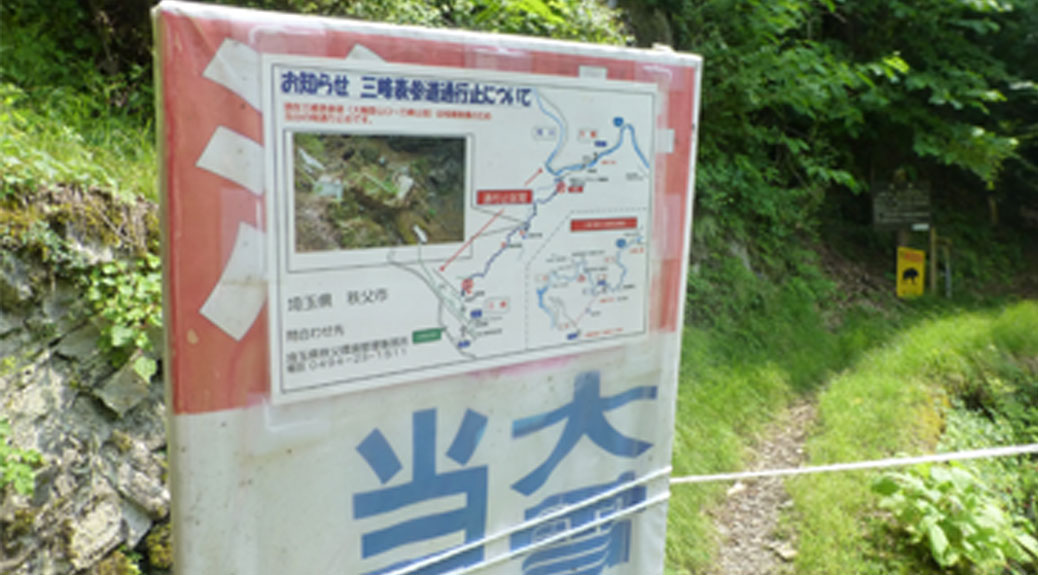
We shimmied under the ropes and headed up the hill. The trail was buried deep in the trees, providing shade and taming the hot summer sun. It was almost pleasant. About a klick up the path, we came to the troubled bridge.
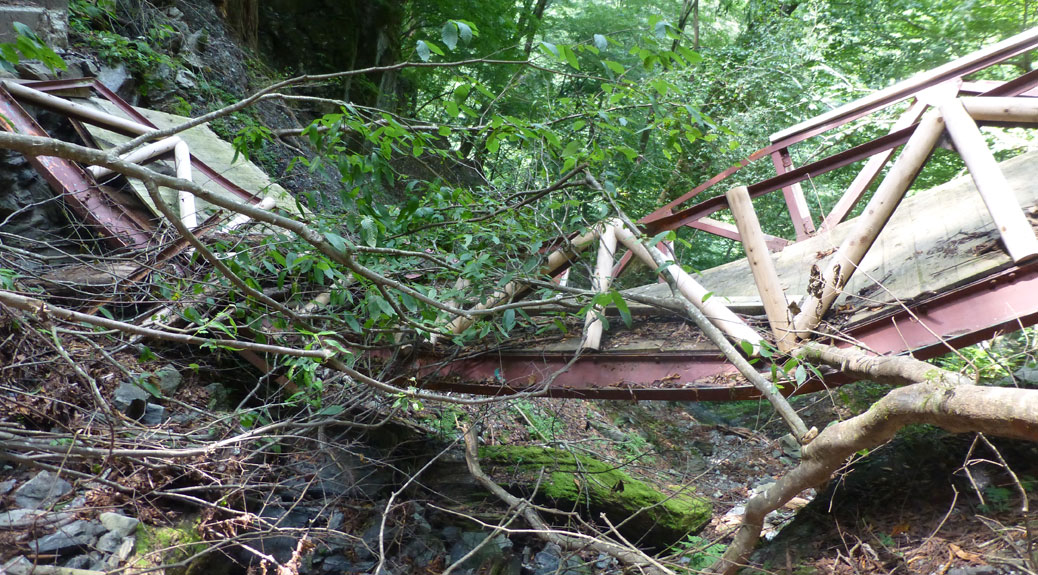
It was fairly easily navigated around, stepping over the small stream that ran beneath it. It looked like Mitsumineyama had seen a hard winter as many of the path guide ropes had slid down the hill in addition to the crushing snow that bested the bridge. Onward and upward!
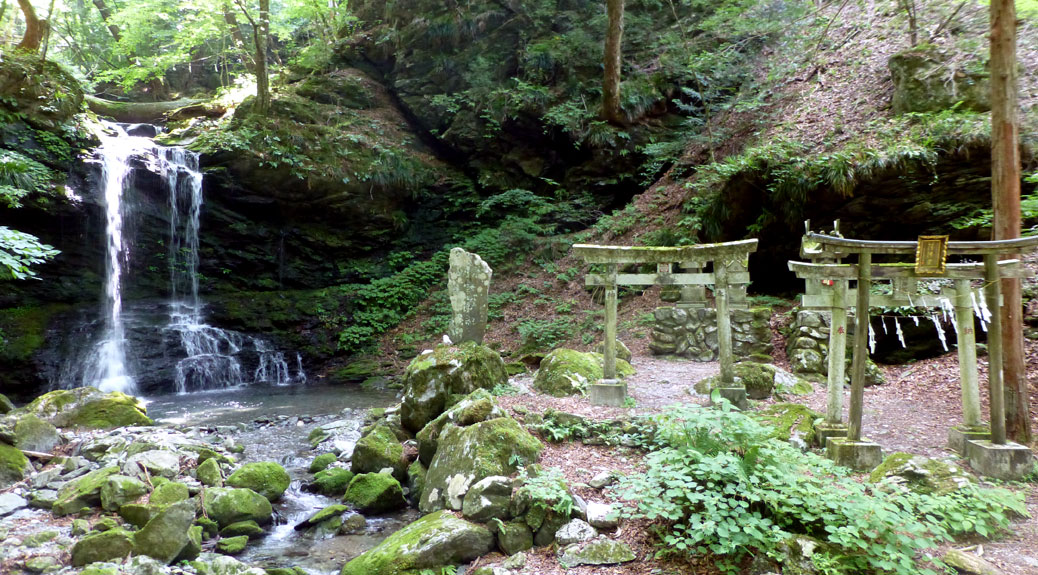
It was obvious why the mountain would be considered a spiritual place. Before long, we came into an opening with a small waterfall, maybe 15-20 feet high, surrounded by several torii and hokora (miniature shrines). Many stone tablets lined the path near the waterfall. It was clear this was a special place. We rested for a few minutes and took it in before continuing our climb, taking in the natural beauty of the area as well as the manmade additions.
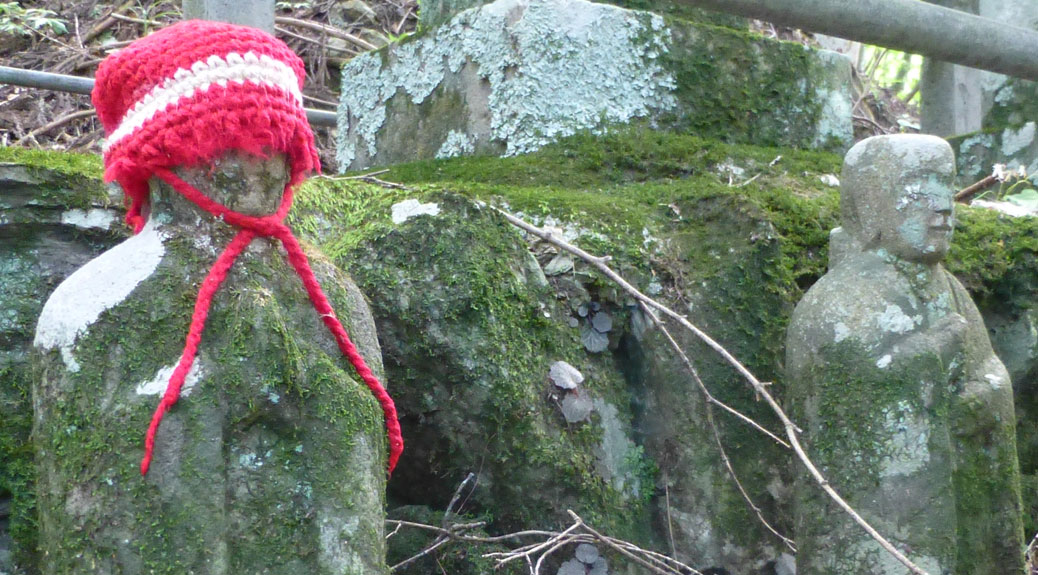
The path never leveled out as it climbed to the top. We finally reached the summit at 1,102 meters (about 3,615 feet) above sea level. We covered about 3.2 km (about 2 miles) in just under two hours. So much for “fairly tame.” But the experience at the top was well worth it. While the bus also goes directly to the front gate, the reward at the top of the mountain made us pity those who took the easy way up. A worship area overlooked the mountainous range and the valley below. After a short rest, we headed down the stone lantern-lined path toward Yōhaiden, the shrine’s worship hall.
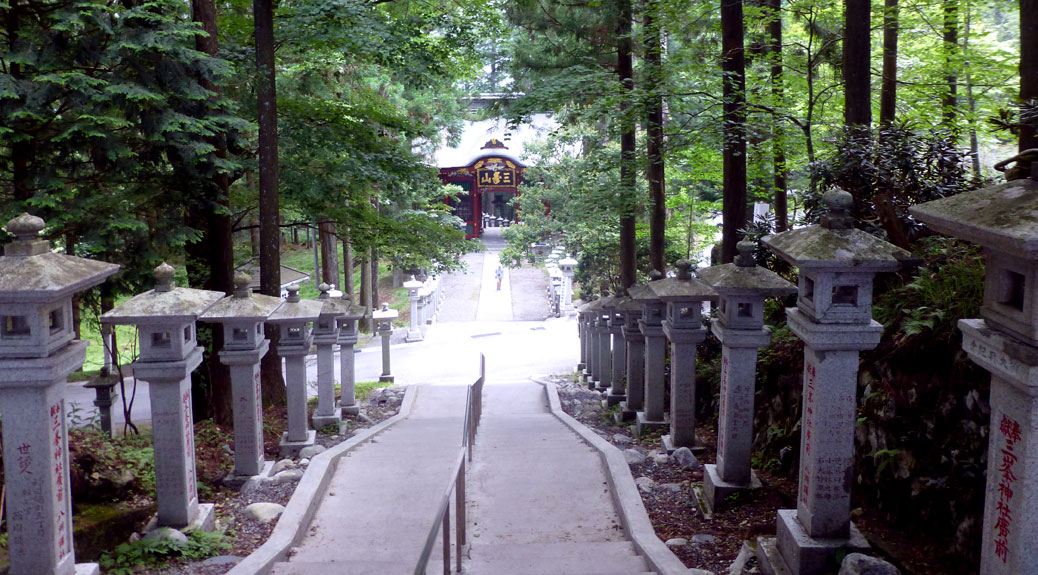
As with most Shinto shrines, Mitsumine is made up of several shrines. The 2,000 year old buildings were renovated around 2003 and were in immaculate condition. The detail of the wood carving was amazing and popped with the refreshed colors.
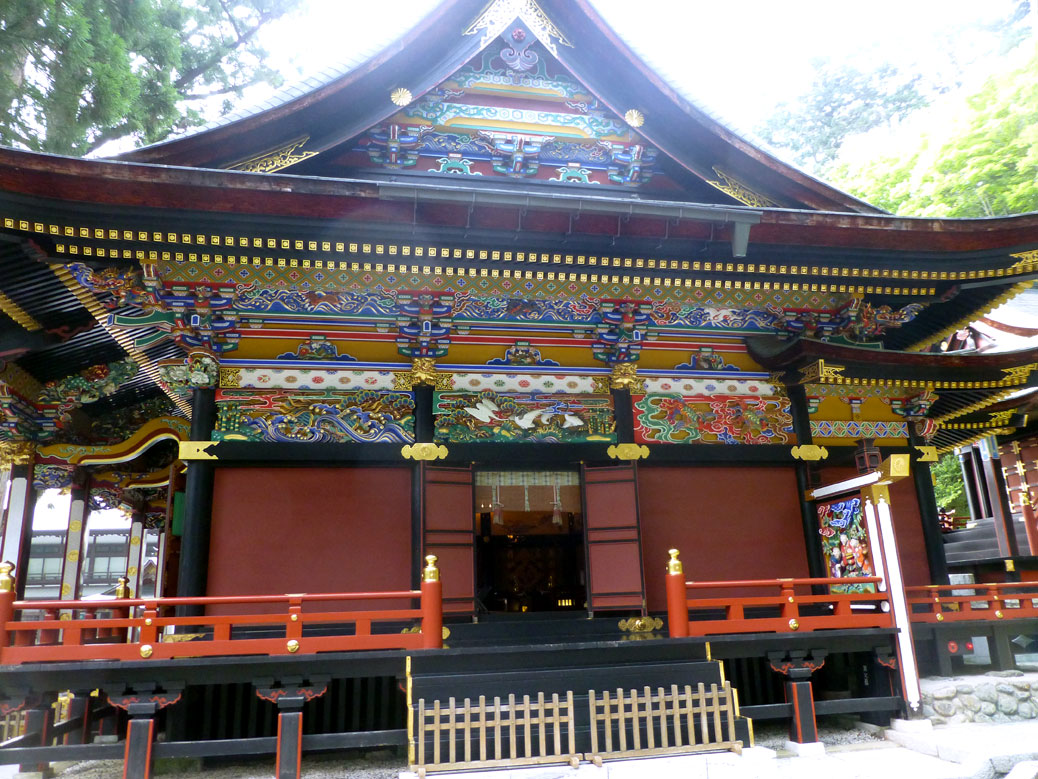
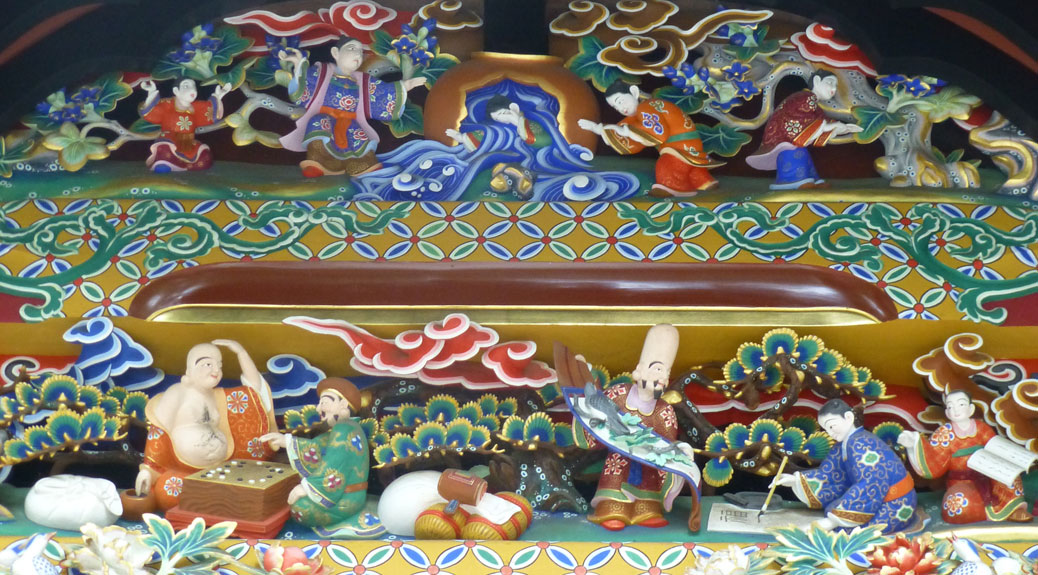
In the center of the shrine is Mitsuminejinja Kounkaku (興雲閣). A cafeteria reminiscent of a senior living dining hall served up hot soba with tempura gobou and all-you-can-drink tea. We fueled up and then paid the low price of 600 yen (plus 200 yen for towel rental) and took advantage of the sentō.
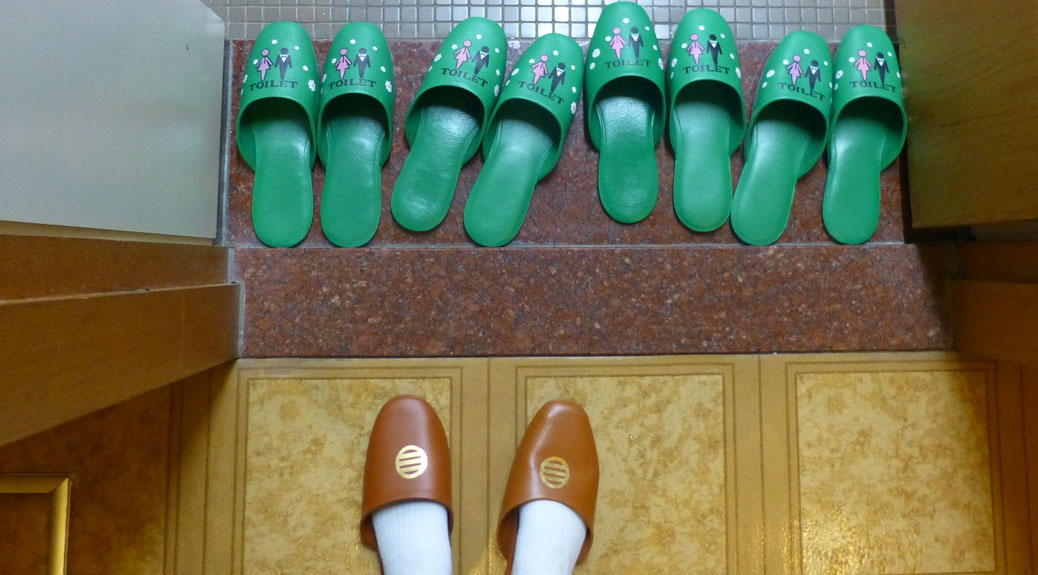
This was our first sentō experience. The “observe and imitate” approach required a little more stealthiness than usual since we’re talking about public baths that don’t allow swimsuits, if you catch my drift. Upon entering the building, we deposited our shoes in the cubby by the door and slipped on the plastic-y brown slippers provided. If you need to use the restroom, you trade these for plastic-y green slippers that say “Toilet” on them with a picture of, what appears to be, a newlywed couple.
Sorry to disappoint, but there are no photos of the sentō itself (didn’t want to be THAT GUY). It could be best described as the locker room hot tub in the gym, but way better. Upon entering, there’s a large showering facility where you are expected to cleanse before entering the bath. The bath water contains minerals that are believed to have healing properties. After a long, sweaty hike up a mountain, I’d say this is spot on.
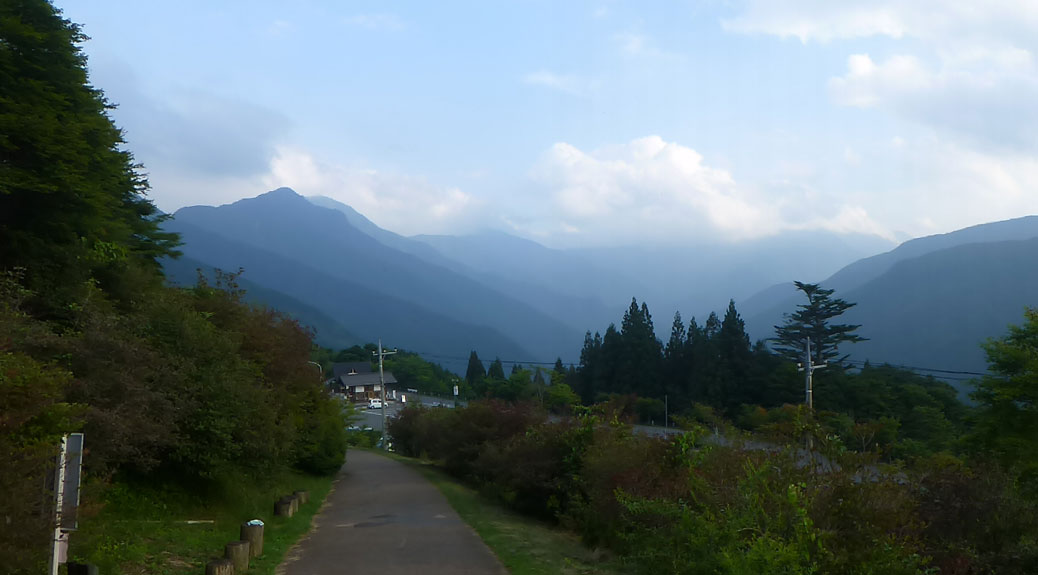
Alas, our time at Mitsumine had to come to an end. We’d originally planned to hike to the peak of Mitakeyama, but the “fairly tame” hike up Mitsumineyama was enough, so we took the bus back to the station. 70 minutes later, we were back on the train for a 90 minute trip home. It was a long day, but a rewarding day.

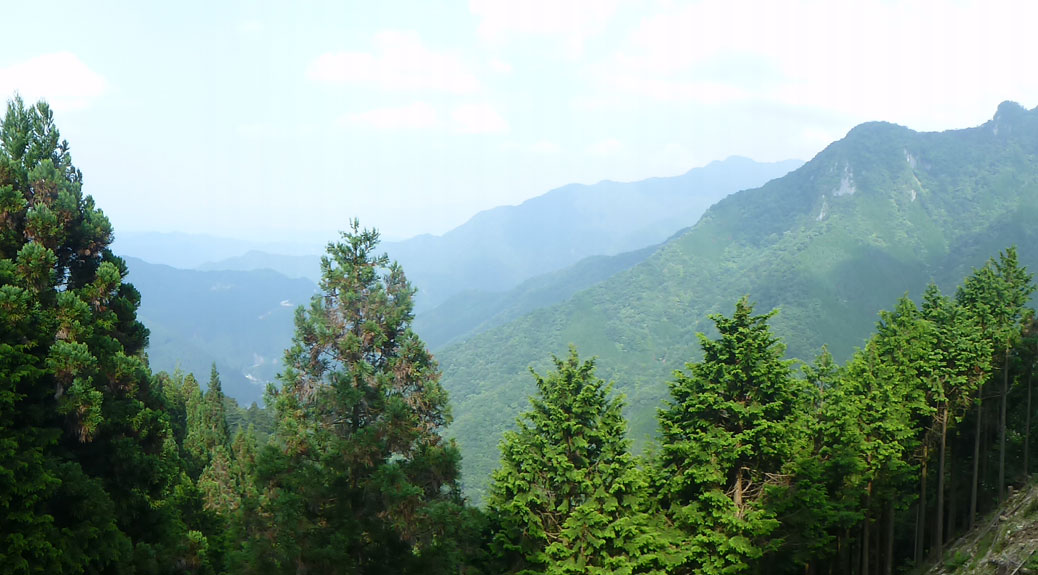
3 thoughts on “On Top of the World”